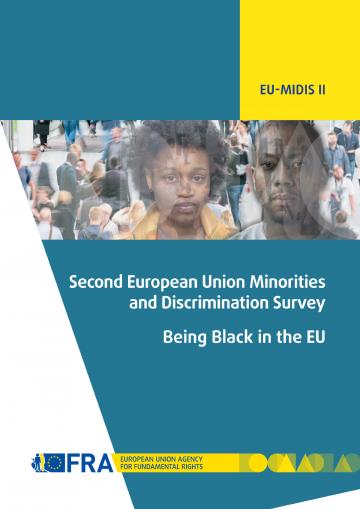Langue
English

Racial discrimination and harassment are commonplace. Experiences with racist violence vary greatly across countries, but reach as high as 14 %. Discriminatory profiling by the police, too, is a common reality. Hurdles to inclusion are multi-faceted, with many respondents facing discrimination during their job search and when looking for housing.
While the survey results paint a dire picture of reality on the ground, they can serve as an important resource for policymakers committed to promoting the full inclusion of people of African descent in the EU.
Access interactive country results using our survey data explorer >>
Contents